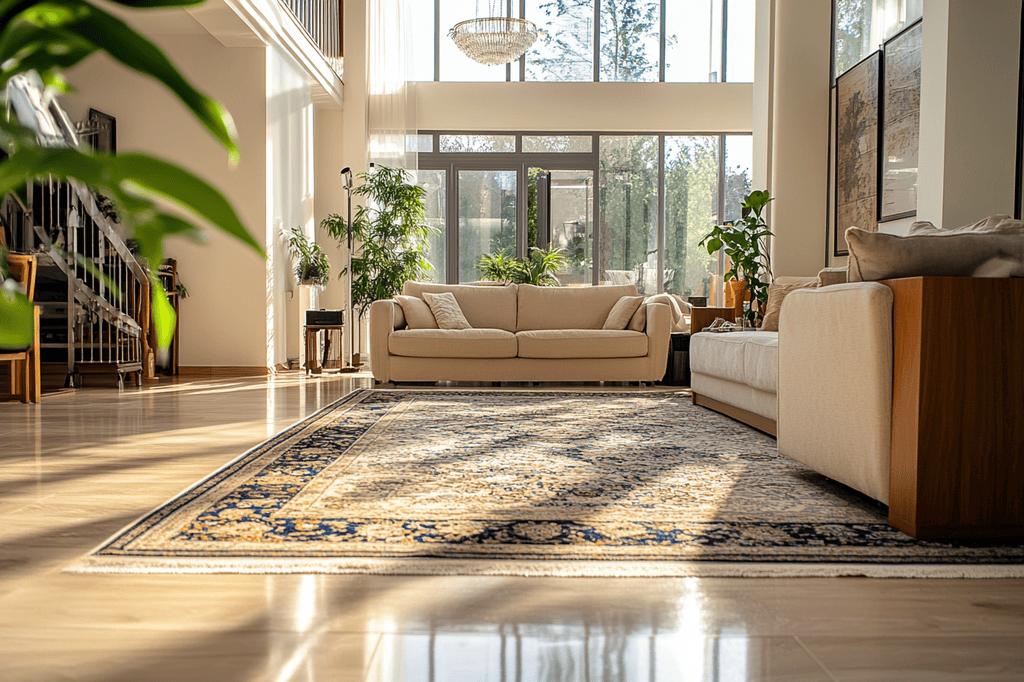A clean home is more than just a visually appealing space; it’s a cornerstone of mental well-being. In recent years, studies have increasingly shown that maintaining a tidy environment can significantly impact one’s mental health.
This article explores the profound connection between cleanliness and psychological health, revealing how vacuuming with powerful suction vacuum options and other cleaning activities can lead to a happier, more balanced life.
The Psychological Impact of a Clean Environment
Clutter and Stress
Clutter in the home can be a significant source of stress. Research indicates that a disorganized living space can lead to increased cortisol levels, the body’s primary stress hormone.
When clutter is prevalent, it can become difficult to focus on tasks or relax in one’s own space. This heightened state of stress can contribute to anxiety and depression over time.
The Power of Control
Keeping a clean home often provides a sense of control and accomplishment. In a world where many factors are beyond personal control, having a tidy space can offer a reassuring level of stability. This control can lead to improved mood and a greater sense of satisfaction with life.
Cleaning as a Form of Physical Activity
Boosting Endorphins
Cleaning, including vacuuming, is not only a task of necessity but also a form of physical activity. Engaging in physical activity, such as vacuuming, can lead to the release of endorphins—chemicals in the brain that act as natural painkillers and mood elevators. Even 20 minutes of cleaning can produce these beneficial effects.
Mindful Cleaning
Vacuuming can also serve as a form of mindfulness. When focusing on the repetitive motion of cleaning, individuals often find themselves in a meditative state, which can reduce stress and promote mental clarity. This mindful approach can help alleviate symptoms of anxiety and depression.
The Role of a Clean Home in Sleep Quality
Restful Sleep
A clean bedroom often leads to better sleep. Studies have shown that individuals who make their beds regularly and keep their rooms tidy tend to experience better sleep quality. The absence of clutter helps create a serene environment conducive to relaxation and rest.
Allergens and Air Quality
Regular vacuuming also plays a crucial role in improving air quality by reducing allergens and dust mites. Better air quality can lead to fewer respiratory issues and thus a more restful sleep. Improved sleep is directly linked to better mental health, as it affects mood, cognition, and overall well-being.
Practical Tips for Maintaining a Clean Home
Establish a Cleaning Routine
Creating a cleaning schedule can help maintain a consistently tidy home. Consider breaking down cleaning tasks into daily, weekly, and monthly chores. Assigning specific tasks to particular days can prevent overwhelming workloads and promote regular cleaning habits.
Involve the Household
Involving all household members in cleaning efforts can distribute the workload and ensure that everyone takes responsibility for maintaining a clean environment. This shared responsibility can also enhance household relationships and reduce stress for the primary cleaner.
Declutter Regularly
Regular decluttering can prevent the accumulation of unnecessary items and maintain a more organized space. Consider adopting a one-in-one-out policy for possessions to manage clutter effectively.
Use Efficient Cleaning Tools
Investing in efficient cleaning tools can make the cleaning process quicker and more enjoyable. While the focus here is on vacuuming, having a reliable vacuum cleaner with strong suction and filtration capabilities can significantly enhance the cleaning experience.
Embracing the Joy of a Clean Home
Engaging in regular cleaning activities like vacuuming not only contributes to a tidy living space but also enhances mental health. By reducing stress, improving mood, promoting restful sleep, and providing a sense of control, a clean home becomes a source of happiness and well-being.
Actionable Advice: Establish a routine that incorporates regular vacuuming and cleaning tasks. Treat these activities as opportunities for mindfulness and physical exercise. By doing so, the path to a healthier mind and happier life becomes clearer, all while enjoying the benefits of a clean and welcoming home environment.

